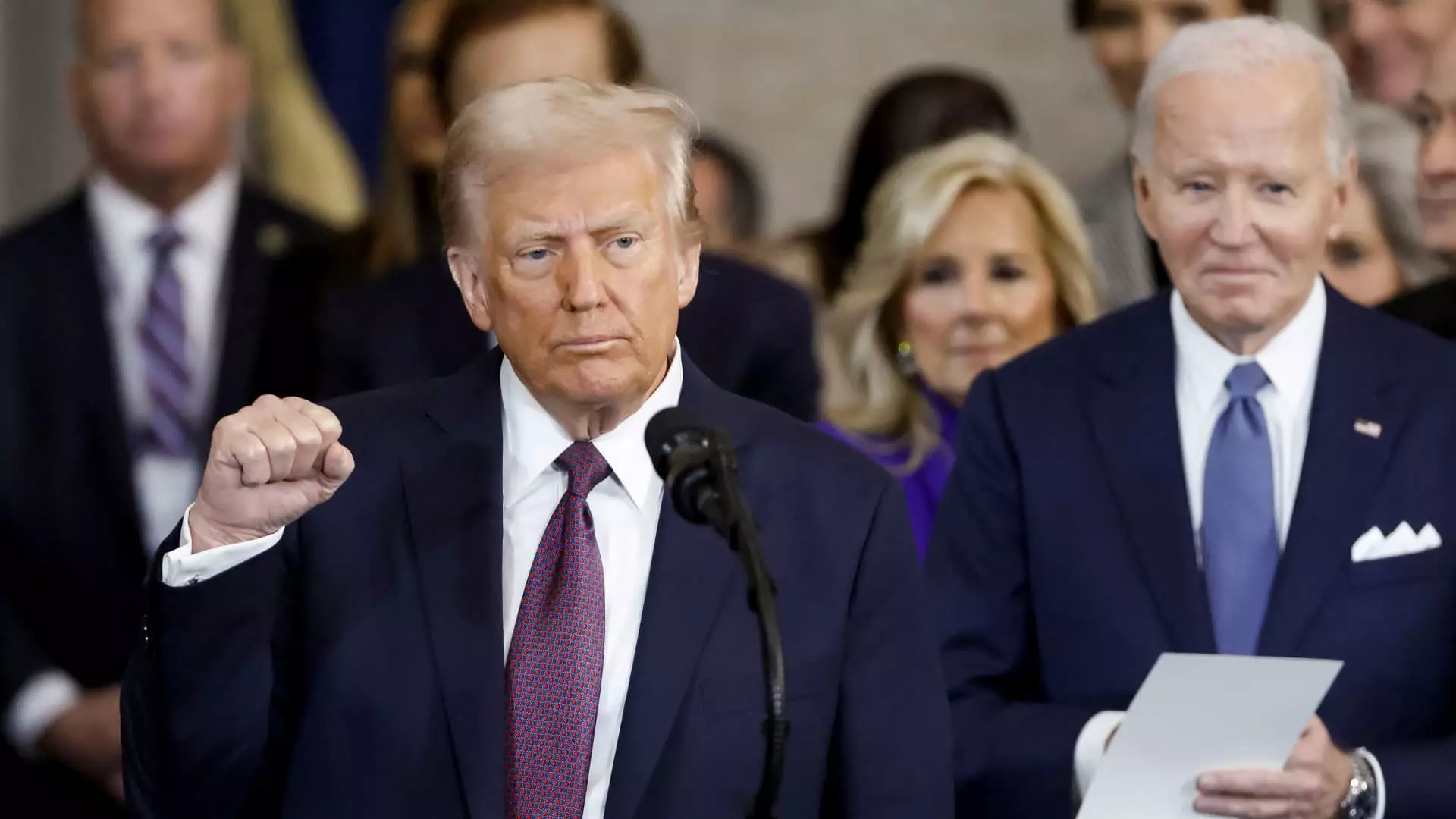In the realm of American politics, it’s not uncommon for leaders to play a dangerous game of passing the buck, but the recent statements made by Commerce Secretary Howard Lutnick exemplify an unraveling approach that borders on absurdity. Placing the blame for faltering economic data squarely on the shoulders of President Joe Biden while lauding the virtues of Donald Trump represents an evasion of responsibility that is both disingenuous and detrimental to public discourse. Rather than taking a nuanced view of economic performance, the narrative surrounding the economy has been reduced to a simplistic “us versus them” construct that further polarizes an already fractured political landscape.
Lutnick’s comments, claiming that President Biden left Trump a so-called “pile of poop,” are emblematic of a larger trend: the refusal to acknowledge multifaceted economic factors that contribute to the nation’s fiscal situation. When economic performance is reduced to blame games between competing administrations, citizens risk losing sight of the real issues at hand. A healthy democratic discourse must include a willingness to engage with uncomfortable truths rather than shirking accountability when it is inconvenient.
Dissecting Economic Reality: Numbers Don’t Lie
While Lutnick and Trump attempt to frame the topic through a lens of failure, the sheer data tells a more complex story. The U.S. economy saw a 2.8% growth rate over the past year, and inflation has notably declined, dropping to 2.9% in December—a significant retreat from the staggering 9.1% high in June 2022. These figures should warrant cautious optimism rather than outright despair.
Yet, Lutnick contends that Trump’s impending economic strategies—including aggressive tariffs—will rectify the alleged catastrophes left behind by Biden. This narrative asserts that the new administration’s policies are somehow untainted by the lingering economic environment they inherit. Such a stance is an affront to critical analysis; understanding economics involves recognizing how policies from previous administrations continue to shape financial conditions.
In this argument, the danger lies in disparaging the current data as “Biden data,” as if it were entirely disconnected from the broader economic trends that transcend single presidencies. The reality is that economies function in context. The underlying complexities should compel leaders to focus on collaborative solutions rather than scapegoating.
Consumer Confidence: The Ticking Time Bomb
Further complicating the narrative is the alarming report released by the Conference Board, highlighting a significant decline in consumer confidence—a critical engine of economic stability. This data cannot simply be dismissed as irrelevant while attempting to paint a rosy picture of growth attributed to Trump. If consumer sentiment deteriorates, it poses dire implications for economic performance.
If one considers the dynamic between presidential leadership and public trust, it becomes clear that the wave of confidence instilled by previous administrations plays a pivotal role in economic resilience. The Trump administration’s current strategy risks breaking this fragile contract with the American people by entertaining a narrative rooted in blame rather than solutions.
Even as Lutnick perpetuates the myth that data is manipulated, suggesting a redrafting of how gross domestic product (GDP) is calculated, he simultaneously neglects the potential consequences of such actions. The notion that GDP should exclude government spending inadvertently risks distorting the understanding of overall economic health, further fuelling skepticism surrounding government data. This is a dangerous endeavor when transparency should be prioritized over political expedience.
The Echo Chamber of Economic Complicity
It’s troubling to witness how economic narratives, once grounded in collective responsibility and shared goals, have devolved into an echo chamber of ideological extremes. Lutnick’s references to “measuring GDP differently” bear striking similarities to efforts that paradoxically undermine the institutions that once formed the bedrock of American economic integrity. Dismissing reputable statistical agencies and working to obfuscate economic realities creates fissures that can lead to public discontent and mistrust in essential governance.
This atmosphere creates fertile ground for individuals like Elon Musk to gain traction for radical ideas without sufficient scrutiny. Musk’s thoughts on GDP reflect an acute misunderstanding of how economic health is genuinely assessed. To posit that the federal expenditure’s role should be minimized in economic discussions could perilously skew public perspectives at a time when rational debate is crucial for moving forward.
Reflecting on these dynamics paints a sobering picture of a political environment where accountability has taken a backseat to bluster, and meaningful economic dialogues have dissolved into blame. As voters seek clarity in these tumultuous times, it becomes imperative for leaders, irrespective of their affiliation, to embrace the full spectrum of economic realities with sincerity and responsibility. One thing is clear: only through informed discourse can we hope to navigate the complexities of our economic landscape effectively.


Leave a Reply